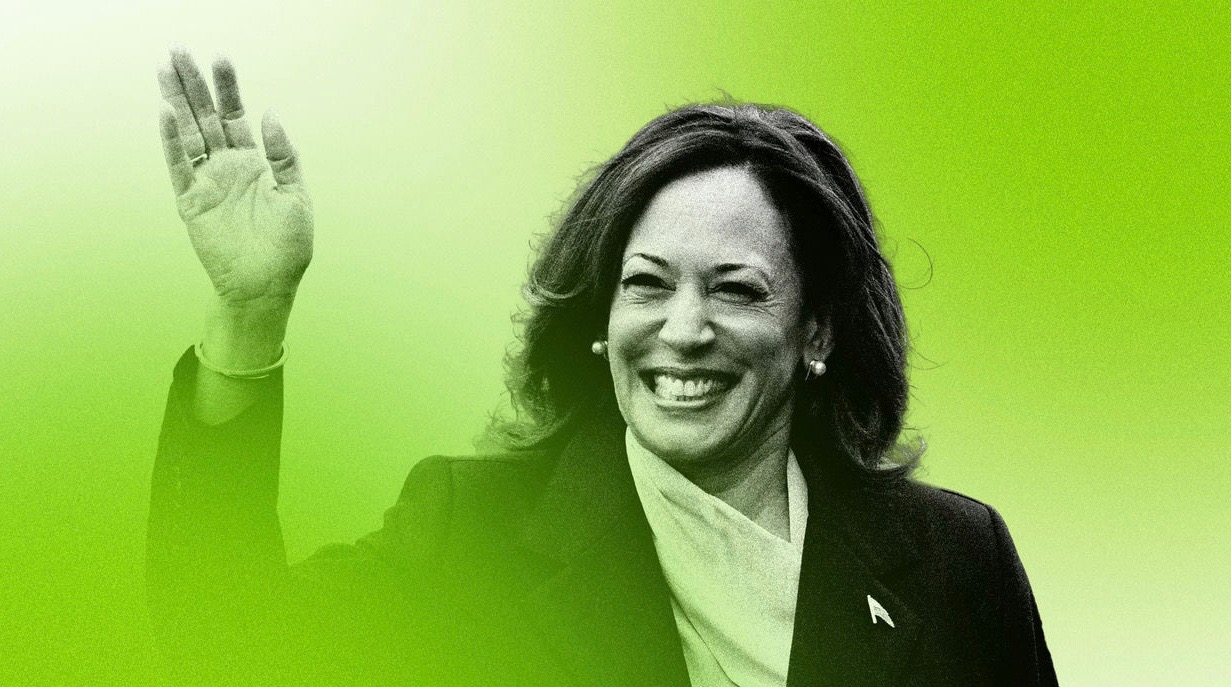Heading toward a federal election, ministers must adjust to “meme-ified” politics

Photo via the Economist by Getty Images.
On July 21, a day after Joe Biden bowed out of the presidential race and endorsed Vice-President Kamala Harris as his replacement, Charli XCX lit up the Democratic party with a three-word post on X: “kamala IS brat.”
Harris’s team has embraced the label, updating the @KamalaHQ profile on X to match the unmistakable slime green cover of Charli XCX’s most recent album, brat. They also began posting other videos using trending sounds on their official TikTok account, and thousands of user-generated memes have surfaced online, remixing footage of Kamala at public appearances, including her telling her infamous “coconut tree” anecdote.
Charli XCX defines brat, the title of her most recent album, as a girl who is messy, likes to party, and says dumb things. However, “brat” has evolved as a catch-all term for the defining moments of summer 2024, including the powerful image of Harris taking on Trump.
In a 2019 article, UBC post-doctoral researcher in political science Chris Tenove defines political memes as “inside jokes that can trigger an emotional reaction.” According to Tenove, they typically function like a code which can only be deciphered by those with some contextual knowledge.
For instance, Democrats have adopted the coconut emoji, and many followers commented on Harris’s first TikTok video, pledging support for “project coconut tree.” Those in the know can share the humor of recalling Harris’s “coconut tree” speech and connect it to their excitement about the nomination of a new presidential candidate.
However, whether the social media attention will translate into more votes at the polls remains to be seen. According to CNN, the Harris campaign is now attempting to leverage the online attention, turning them to fundraising, voter registration and volunteer sign-ups.
Canadian politicians may take note as we head toward our federal election, slated for before October 2025. The liberals in particular are struggling to win over young voters. In July, an Abacus Data poll showed Trudeau’s party held just a 22 per cent vote share among those under 35, compared to a 41 per cent peak in 2015.
Some ministers have already hopped on viral trends. In May, Minister for Employment Randy Boissonault told CBC News that he lets Gen Z staff run his social media pages and release videos using viral audio, like singer Sabrina Carpenter’s chart-topper “Espresso.”
However, some attempts to piggyback on Kamala’s “meme-mentum” (a term coined by Vox Media), have faltered. Environment and Housing Minister Steven Guilbeault faced backlash when he posted a video on X using Charli XCX’s brat-inspired lime green and lowercase font.
In the video, text that reads “brat summer” is changed to read “housing summer,” followed by newspaper clippings of housing projects. Commenters were unimpressed. Conservative Sarah Fischer criticized his “epic failure” to provide affordable housing, and others simply said “cringe.”
On July 24, the NDP floundered when they posted a Venn diagram to their party’s X page. Their post was inspired by viral audio, in which Kamala Harris enthuses about the circular infographics. Three overlapping circles in the diagram read “cancel,” “corporate,” and “handouts.” The message “cancel corporate handouts” appears in the middle. Embarrassingly, the diagram was incorrectly constructed. One comment reads, “Did you even run this through a high schooler?”
The attempts of politicians to connect via social media may fail because they misunderstand how memes become popular. David Tenove warns, in an article for The Conversation, that attempting to capitalize on a joke or message which belongs to another group can lead to claims of inauthenticity.
The effort to “brat-ify” housing may have backfired because the messy and unapologetic attitude of brat is misaligned with Canadians’ negative emotions as they struggle to find an affordable home. Moreover, the awkward Venn diagram lacks humour and doesn’t feel like it understands the joke. Surely, anyone who loved Venn diagrams would construct one correctly. Neither of these approaches came from an authentic moment, but instead, attempted to reclaim someone else’s.
In contrast, American Democrats’ new tactic of dubbing Republicans “weird” taps into core emotions anybody can relate to, such as discomfort. It reinforces a sense of belonging in their voter base, by being a joke shared amongst the whole democratic party.
Canadian politicians should find a way to effectively capitalize on authentic moments and emotions to connect with Gen Z voters online. After all, memes don’t just fall out of coconut trees.







